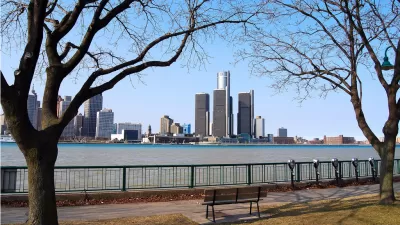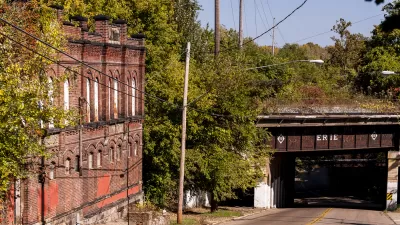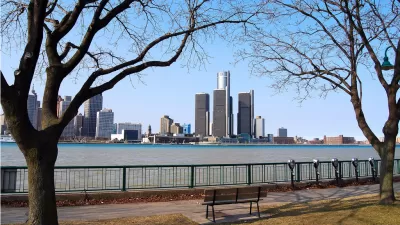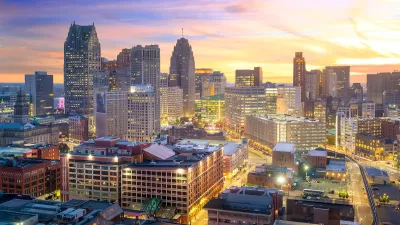It's fun to write miracle comeback stories, but the epic of Detroit's resurgence has been exaggerated, according to an article in The Conversation.

Since Detroit's 2013 bankruptcy, many around the Midwest and the country were eager to see how the city would respond. The resolution of the bankruptcy and the restoration of many downtown buildings has led some to trumpet a turnaround. That news may be premature, the city is still shrinking. Laura A. Reese and Gary Sands look into the state of today's Detroit, and their conclusions aren't rosy.
"First, by a number of measures Detroit continues to decline, and even when positive change has occurred, growth has been much less robust than many narratives would suggest. Second, within the city recovery has been highly uneven, resulting in increasing inequality," Laura A. Reese and Gary Sands write for The Conversation. Among other growing problems the authors point out, real estate values in the city remain flat, even as prices increase in cities all around the Midwest and Detroit's income and wealth inequality continue to grow.
FULL STORY: Detroit’s recovery: The glass is half-full at most

Maui's Vacation Rental Debate Turns Ugly
Verbal attacks, misinformation campaigns and fistfights plague a high-stakes debate to convert thousands of vacation rentals into long-term housing.

Planetizen Federal Action Tracker
A weekly monitor of how Trump’s orders and actions are impacting planners and planning in America.

San Francisco Suspends Traffic Calming Amidst Record Deaths
Citing “a challenging fiscal landscape,” the city will cease the program on the heels of 42 traffic deaths, including 24 pedestrians.

Defunct Pittsburgh Power Plant to Become Residential Tower
A decommissioned steam heat plant will be redeveloped into almost 100 affordable housing units.

Trump Prompts Restructuring of Transportation Research Board in “Unprecedented Overreach”
The TRB has eliminated more than half of its committees including those focused on climate, equity, and cities.

Amtrak Rolls Out New Orleans to Alabama “Mardi Gras” Train
The new service will operate morning and evening departures between Mobile and New Orleans.
Urban Design for Planners 1: Software Tools
This six-course series explores essential urban design concepts using open source software and equips planners with the tools they need to participate fully in the urban design process.
Planning for Universal Design
Learn the tools for implementing Universal Design in planning regulations.
Heyer Gruel & Associates PA
JM Goldson LLC
Custer County Colorado
City of Camden Redevelopment Agency
City of Astoria
Transportation Research & Education Center (TREC) at Portland State University
Jefferson Parish Government
Camden Redevelopment Agency
City of Claremont





























